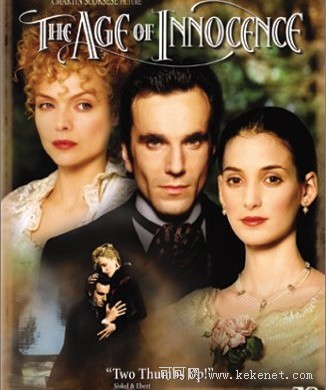
That evening, after Mr. Jackson had taken himself away, and the ladies had retired to their chintz- curtained bedroom, Newland Archer mounted thoughtfully to his own study. A vigilant hand had, as usual, kept the fire alive and the lamp trimmed; and the room, with its rows and rows of books, its bronze and steel statuettes of "The Fencers" on the mantelpiece and its many photographs of famous pictures, looked singularly home-like and welcoming.
這天晚上,杰克遜先生離開之后,兩位女士回到她們掛著印花布窗簾的臥室,紐蘭·阿切爾沉思著上樓進了自己的書房。勤快的仆人已跟平時一樣把爐火燃旺,調好了燈的光亮。屋子里放著一排排的書,壁爐爐臺上放著一個個銅制與鋼制的“擊劍者”小雕像,墻上掛著許多名畫的照片——這一切看起來格外溫馨。
As he dropped into his armchair near the fire his eyes rested on a large photograph of May Welland, which the young girl had given him in the first days of their romance, and which had now displaced all the other portraits on the table. With a new sense of awe he looked at the frank forehead, serious eyes and gay innocent mouth of the young creature whose soul's custodian he was to be. That terrifying product of the social system he belonged to and believed in, the young girl who knew nothing and expected everything, looked back at him like a stranger through May Welland's familiar features; and once more it was borne in on him that marriage was not the safe anchorage he had been taught to think, but a voyage on uncharted seas.
他坐進自己那把扶手椅時,目光落在梅·韋蘭的一張大照片上,那是他們戀愛初期那位年輕姑娘送給他的,如今已經取代了桌子上所有其他的畫像。他帶著一種敬畏的新感覺注視著她那坦誠的前額、莊重的眼睛,以及天真快樂的嘴巴。他就要成為這位年輕女子的靈魂監護人了,作為他歸屬并信奉的這個社會制度的令人驚嘆的產物,這位年輕姑娘對一切都全然不知,卻又期待著得到一切。她像一個陌生人,借助梅·韋蘭那熟悉的容貌回望著他;他又一次深刻地認識到:婚姻并非如他慣常認為的那樣,是一個安全的港灣,而是在未知的大洋上的航行。
The case of the Countess Olenska had stirred up old settled convictions and set them drifting dangerously through his mind. His own exclamation: "Women should be free--as free as we are," struck to the root of a problem that it was agreed in his world to regard as non-existent. "Nice" women, however wronged, would never claim the kind of freedom he meant, and generous- minded men like himself were therefore--in the heat of argument--the more chivalrously ready to concede it to them. Such verbal generosities were in fact only a humbugging disguise of the inexorable conventions that tied things together and bound people down to the old pattern. But here he was pledged to defend, on the part of his betrothed's cousin, conduct that, on his own wife's part, would justify him in calling down on her all the thunders of Church and State. Of course the dilemma was purely hypothetical; since he wasn't a blackguard Polish nobleman, it was absurd to speculate what his wife's rights would be if he WERE. But Newland Archer was too imaginative not to feel that, in his case and May's, the tie might gall for reasons far less gross and palpable. What could he and she really know of each other, since it was his duty, as a "decent" fellow, to conceal his past from her, and hers, as a marriageable girl, to have no past to conceal? What if, for some one of the subtler reasons that would tell with both of them, they should tire of each other, misunderstand or irritate each other? He reviewed his friends' marriages-- the supposedly happy ones--and saw none that answered, even remotely, to the passionate and tender comradeship which he pictured as his permanent relation with May Welland. He perceived that such a picture presupposed, on her part, the experience, the versatility, the freedom of judgment, which she had been carefully trained not to possess; and with a shiver of foreboding he saw his marriage becoming what most of the other marriages about him were: a dull association of material and social interests held together by ignorance on the one side and hypocrisy on the other. Lawrence Lefferts occurred to him as the husband who had most completely realised this enviable ideal. As became the high-priest of form, he had formed a wife so completely to his own convenience that, in the most conspicuous moments of his frequent love-affairs with other men's wives, she went about in smiling unconsciousness, saying that "Lawrence was so frightfully strict"; and had been known to blush indignantly, and avert her gaze, when some one alluded in her presence to the fact that Julius Beaufort (as became a "foreigner" of doubtful origin) had what was known in New York as "another establishment."
奧蘭斯卡伯爵夫人的事攪亂了那些根深蒂固的社會信條,并使它們在他的腦海里危險地飄移。他個人的斷言——“女人應當是自由的——跟我們一樣自由” ——擊中了一個問題的要害,而這個問題在他那個圈子里卻一致認為是不存在的。“有教養”的女子,無論受到怎樣的傷害,都決不會要求他講的那種自由,而像他這樣心胸博大的男人卻因此越發豪俠地——在激烈辯論中——準備把這種自由授與她們。這種口頭上的慷慨陳詞實際上只是騙人的幌子而已,在它背后止是束縛世事、讓人因襲守舊的不可動搖的習俗。不過,他在這里發誓為之辯護的未婚妻的表姐的那些行為,若是出現在自己妻子身上,他即使請求教會和國家給她最嚴厲的懲罰也會是正當的。當然,這種兩難的推測純屬假設;既然他不是個惡棍般的波蘭貴族,現在假設他是,再來推斷他妻子將有什么權力,這未免荒唐。然而紐蘭·阿切爾想像力太強,難免不想到他與梅的關系也可能會由于遠沒有如此嚴重和明顯的原因而受到損害。既然作為一個“正人君子”,向她隱瞞自己的過去是他的義務,而作為已到婚齡的姑娘,她的義務卻是把過去的歷史向他袒露,那么,兩個人又怎能真正相互了解呢?假如因某種微妙的原因使他們兩人互相厭倦、誤解或發生不愉快,那該怎么辦呢?他回顧朋友們的婚姻——那些被認為是美滿的婚姻——發現沒有一個(哪怕一點點)符合他為自己與梅·韋蘭構想的那種終生相伴的熱烈而又溫柔的友愛關系。他意識到,作為這種構想的前提條件——她的經驗、她的多才多藝、她的判斷自由——她早已被精心訓練得不具備了。他預感地打了個冷顫,發現自己的婚姻變得跟周圍大部分人完全相同:一種由一方的愚昧與另一方的虛偽捏合在一起的物質利益與社會利益的乏味的聯盟。他想到,勞倫斯·萊弗茨就是一個徹底實現了這一令人羨慕的理想的丈夫。那位儀態舉止方面的權威,塑造了一位給他最大方便的妻子。在他與別人的妻子頻繁發生桃色事件大出風頭的時刻,她卻照常喜笑顏開,不知不覺,四處游說:“勞倫斯極其循規蹈矩。”有人在她面前提及朱利葉斯·博福特擁有紐約人所說的“外室”時(籍貫來歷不明的“外國人”常常如此),據說她氣得臉都紅了,并且把目光移開。











